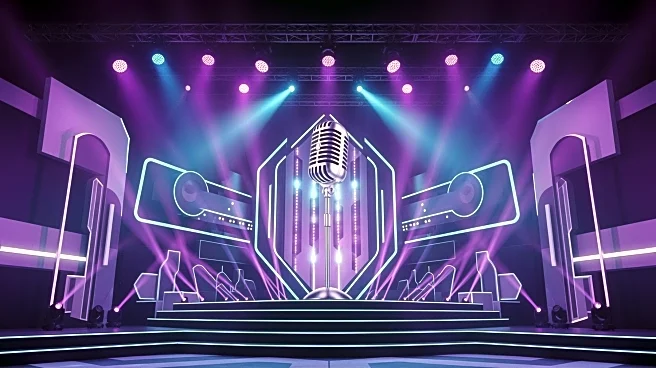What's Happening?
Bad Bunny is set to headline the Super Bowl LX halftime show on February 8, 2026, at Levi's Stadium in Santa Clara, California. The announcement has sparked significant controversy, particularly from conservative groups who argue that his Spanish-language
performance does not align with traditional American values. NFL Commissioner Roger Goodell has defended the decision, emphasizing Bad Bunny's global popularity and the league's commitment to diversity and inclusion. Despite petitions and calls for his replacement, the NFL remains firm in its choice, highlighting the cultural significance of having a Spanish-language artist headline the event.
Why It's Important?
The decision to feature Bad Bunny at the Super Bowl halftime show represents a significant cultural moment, showcasing the NFL's dedication to diversity and inclusion. This move could potentially broaden the league's appeal to Latino audiences and reflect the growing influence of Latino culture in mainstream American entertainment. However, it also highlights the ongoing cultural tensions within the U.S., as conservative groups express concern over the perceived erosion of traditional values. The NFL's stance may influence future entertainment choices and signal a shift towards more inclusive representation in major sporting events.
What's Next?
As the Super Bowl approaches, preparations at Levi's Stadium will intensify, with stage setups and choreography being finalized. Bad Bunny's team is reportedly collaborating with local talent to enhance the performance. Marketing campaigns will emphasize the historic nature of the event, while conservative groups may continue their protest efforts. The NFL's investment in production quality and security logistics underscores the importance of the halftime show as a cultural statement. The performance is expected to reach over 115 million viewers globally, potentially reshaping perceptions of Latino culture in American sports.
Beyond the Headlines
The inclusion of Bad Bunny in the Super Bowl halftime show could have long-term implications for cultural representation in sports. It may encourage other major events to feature diverse artists, promoting inclusivity and challenging traditional norms. This decision also raises questions about the balance between cultural representation and maintaining traditional values in American entertainment. The NFL's choice reflects broader societal shifts towards embracing multiculturalism, which could influence public policy and societal attitudes in the future.

















